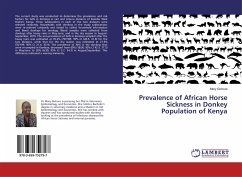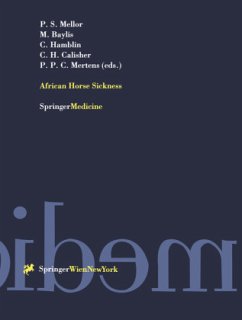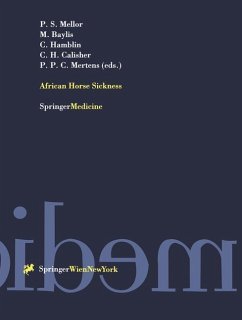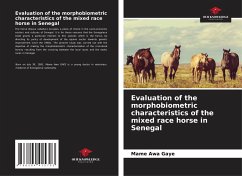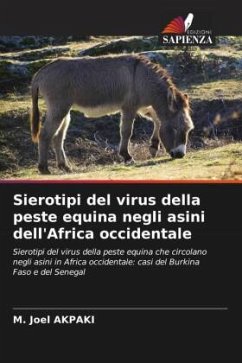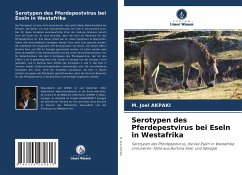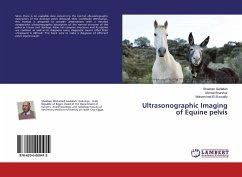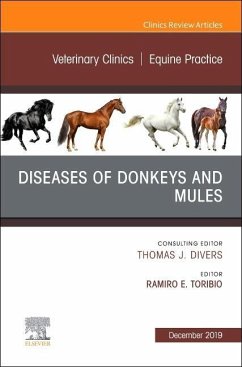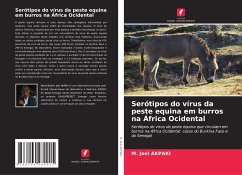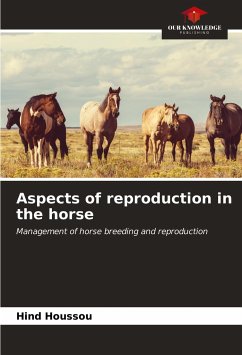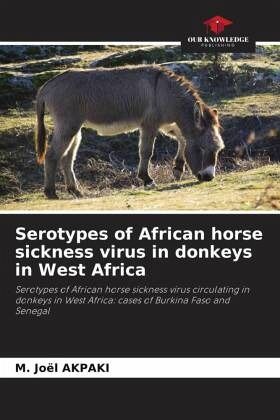
Serotypes of African horse sickness virus in donkeys in West Africa
Serotypes of African horse sickness virus circulating in donkeys in West Africa: cases of Burkina Faso and Senegal
Versandkostenfrei!
Versandfertig in 6-10 Tagen
41,99 €
inkl. MwSt.

PAYBACK Punkte
21 °P sammeln!
The African horse sickness is a vector disease not contagious but frightening in horses in which it can involve 100% of mortality. The virus of the genus Orbivirus responsible for this disease is also found in the donkey. The latter is suspected to be a reservoir of the African horse sickness virus. The objective of this work was to verify this hypothesis by seeking all the different serotypes of this virus in the donkey. We worked on a total of 479 donkey serum samples, 189 of which were collected in Burkina Faso and 290 in Senegal. In the laboratory, 2 tests were performed: blocking ELISA an...
The African horse sickness is a vector disease not contagious but frightening in horses in which it can involve 100% of mortality. The virus of the genus Orbivirus responsible for this disease is also found in the donkey. The latter is suspected to be a reservoir of the African horse sickness virus. The objective of this work was to verify this hypothesis by seeking all the different serotypes of this virus in the donkey. We worked on a total of 479 donkey serum samples, 189 of which were collected in Burkina Faso and 290 in Senegal. In the laboratory, 2 tests were performed: blocking ELISA and viral serum neutralisation (only for ELISA positives). Of the 9 serotypes of the African horse sickness virus annotated from 1 to 9, only serotype 3 was not found in Senegal, and in Burkina faso serotypes 1 and 3 were absent. The donkeys in our two countries of study therefore harbour the different serotypes of the virus without causing the disease. As the donkey is never vaccinated in these countries against African horse sickness, this observation makes us say that the donkey can be considered as a reservoir of the African horse sickness virus in Burkina Faso and Senegal.



